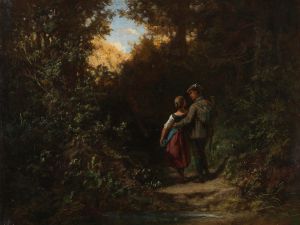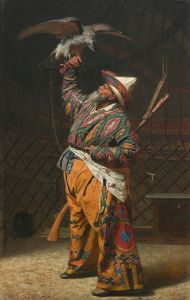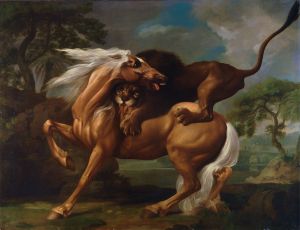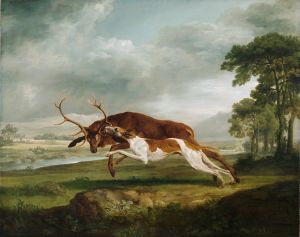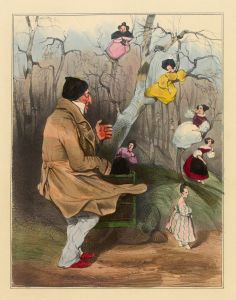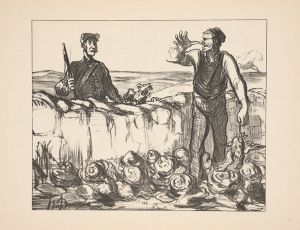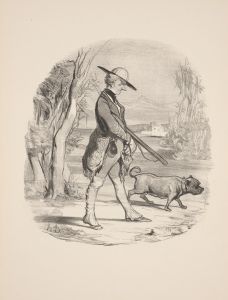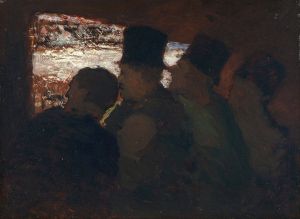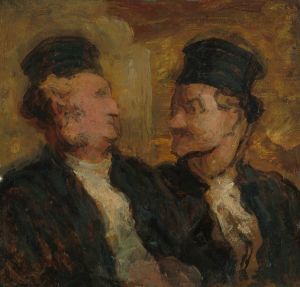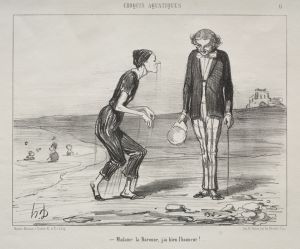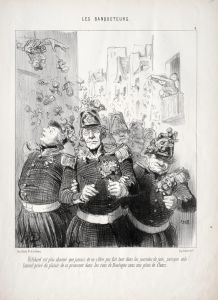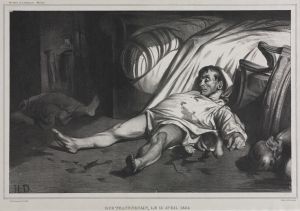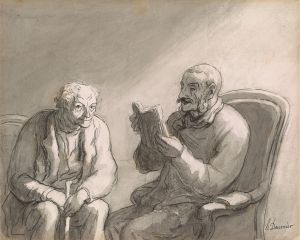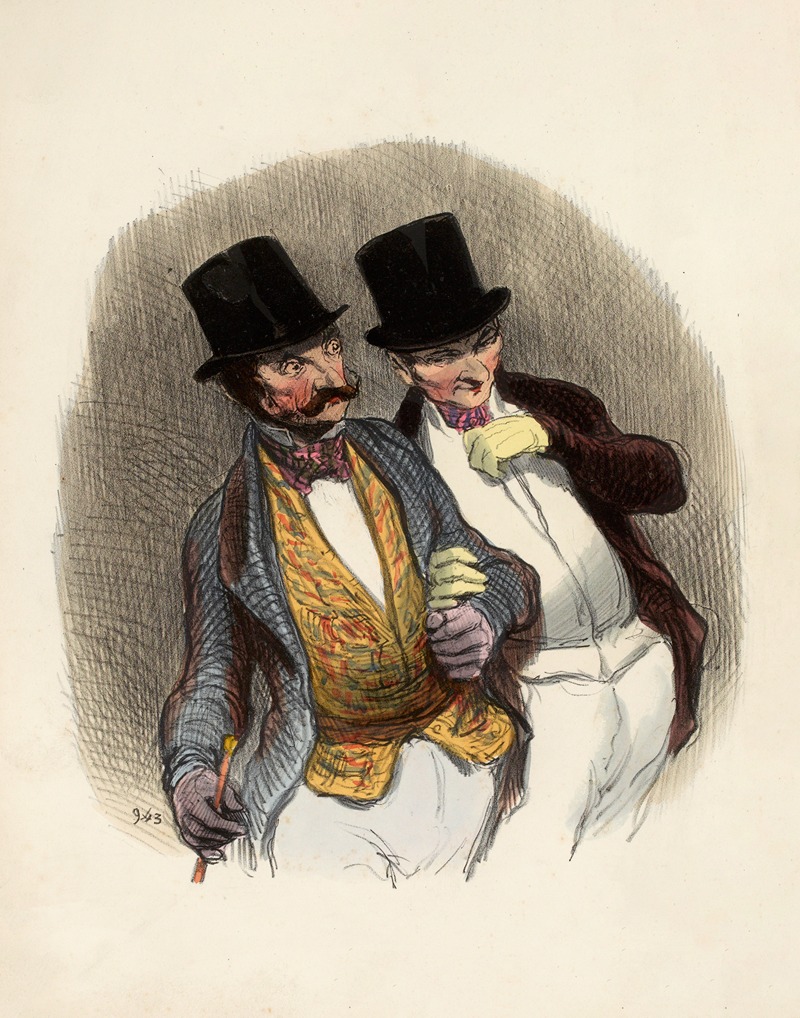
Ils reviennent de plumer les canards
A hand-painted replica of Honoré Daumier’s masterpiece Ils reviennent de plumer les canards, meticulously crafted by professional artists to capture the true essence of the original. Each piece is created with museum-quality canvas and rare mineral pigments, carefully painted by experienced artists with delicate brushstrokes and rich, layered colors to perfectly recreate the texture of the original artwork. Unlike machine-printed reproductions, this hand-painted version brings the painting to life, infused with the artist’s emotions and skill in every stroke. Whether for personal collection or home decoration, it instantly elevates the artistic atmosphere of any space.
Honoré Daumier was a prominent French artist known for his caricatures, paintings, and sculptures. He was born on February 26, 1808, in Marseille, France, and became one of the most influential figures in 19th-century French art. Daumier's work often focused on social and political themes, and he was particularly renowned for his ability to capture the essence of Parisian life and the socio-political climate of his time.
"Ils reviennent de plumer les canards" is one of Daumier's works, which translates to "They Return from Plucking the Ducks." This piece is part of Daumier's extensive body of work that often depicted scenes from everyday life, infused with his characteristic wit and keen observation. While Daumier is primarily celebrated for his lithographs and caricatures, he also produced a number of paintings that reflect his interest in the human condition and social commentary.
The painting "Ils reviennent de plumer les canards" is an example of Daumier's ability to convey narrative through imagery. Although specific details about this particular work are scarce, it is consistent with Daumier's style to use such scenes to comment on societal norms and behaviors. His works frequently highlighted the lives of the working class and the bourgeoisie, often with a satirical edge.
Daumier's art was heavily influenced by the political and social upheavals of his time. He lived through significant events such as the July Revolution of 1830 and the Revolution of 1848, which shaped his worldview and artistic output. His works often critiqued the government and the legal system, and he was known for his boldness in addressing controversial subjects.
Throughout his career, Daumier contributed to various publications, including the satirical newspaper "La Caricature" and later "Le Charivari." His lithographs in these publications were instrumental in establishing his reputation as a master caricaturist. Despite facing censorship and even imprisonment for his politically charged works, Daumier continued to produce art that challenged authority and provoked thought.
In addition to his lithographs and paintings, Daumier also created sculptures, many of which were studies for his caricatures. His sculptures, like his other works, were characterized by their expressive quality and attention to detail.
Daumier's legacy is significant, as he influenced many artists who came after him, including the Impressionists. His ability to capture the essence of human emotion and societal dynamics has left a lasting impact on the art world. Today, Daumier is remembered as a pioneer of social realism and a master of satire.
While "Ils reviennent de plumer les canards" may not be as widely recognized as some of Daumier's other works, it remains an important part of his oeuvre, reflecting his enduring interest in the everyday lives of people and his skill in using art as a means of social commentary.





